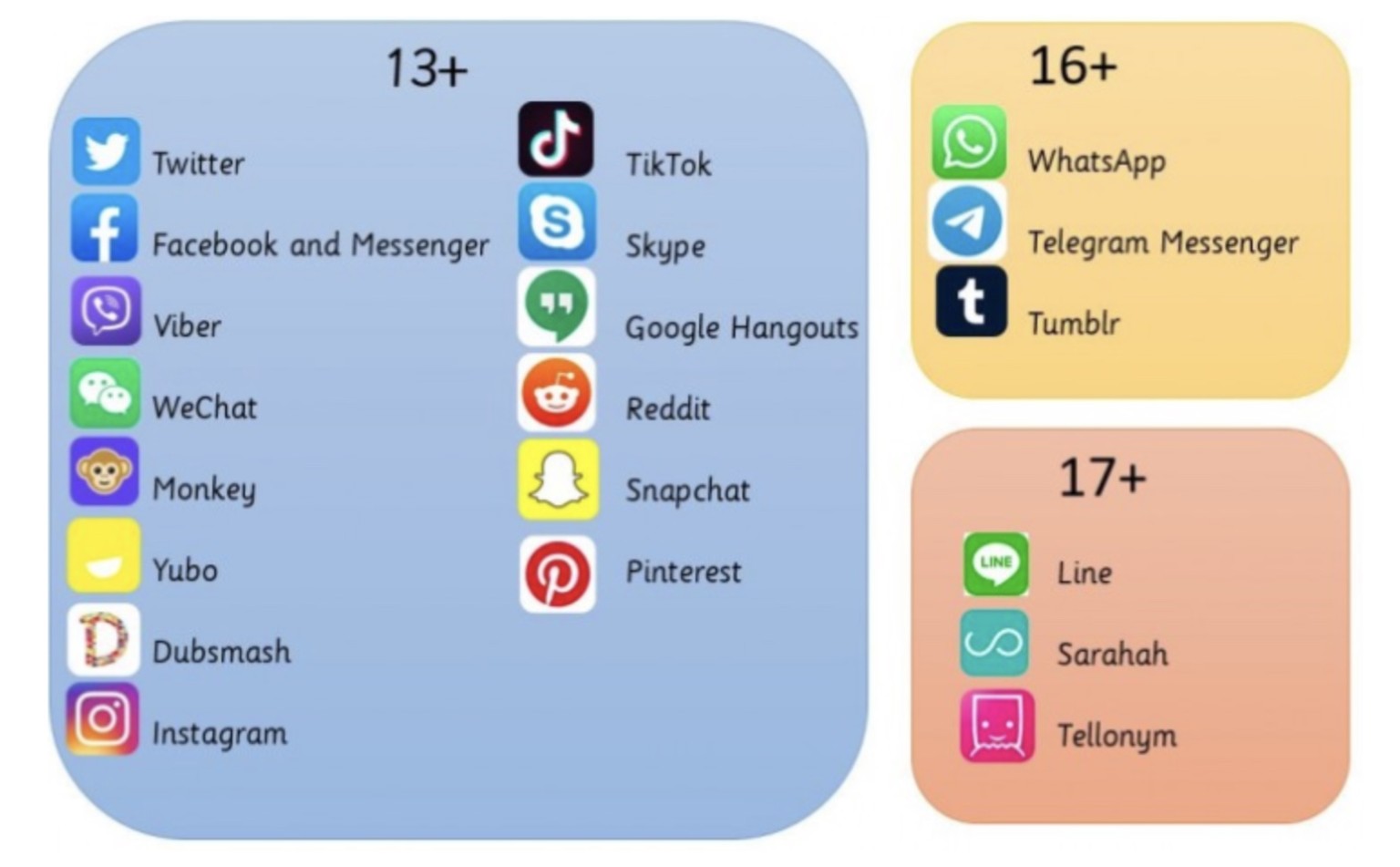The online world develops and changes at great speed. New opportunities, challenges and associated risks are appearing all the time. This can make it difficult schools and parents to stay up to date with the latest devices, platforms, apps, trends and related threats. It is therefore important to focus on the underpinning knowledge and behaviours that can help pupils to navigate the online world safely and confidently regardless of the device, platform or app. To help to tackle this, our computing curriculum includes specific online safety lessons that are relevant and age-appropriate. We also take every opportunity to incorporate learning into whole-school approaches, as well as in PSHCRE lessons and through cross-curricular links.
Our school supports the SMART approach to online safety:
SAFE:
Keep your personal information safe. When chatting or posting online don’t give away things like your full name, password or home address. Remember personal information can be seen in images and videos you share too. Keep them safe to keep yourself safe.
MEET:
Meeting up with someone you only know online, even a friend of a friend, can be dangerous as this person is still a stranger. If someone you only know online ever asks you to meet up, for personal information or for photos/videos of you then tell an adult straight away and report them together on www.thinkuknow.co.uk
ACCEPTING:
Think carefully before you click on or open something online (e.g. links, adverts, friend requests, photos) as you never know where they may lead to or they may contain viruses. Do not accept something if you are unsure of who the person is or what they’ve sent you.
RELIABLE:
You cannot trust everything you see online as some things can be out of date, inaccurate or not entirely true. To find reliable information compare at least three different websites, check in books and talk to someone about what you have found.
TELL:
Tell a trusted adult if something or someone ever makes you feel upset, worried or confused. This could be if you or someone you know is being bullied online. There are lots of people who will be able to help you, like your teachers, parents and carers or contact Childline – 0800 11 11 or www.childline.org.uk
BE SMART WITH A HEART:
Remember to always be smart with a heart by being kind and respectful to others online. Make the internet a better place by helping your friends if they are worried or upset by anything that happens online.
Clover Hill Acceptable Use Agreements
We expect our families to read, sign and adhere to our acceptable use policy regarding ICT. Breaches to the agreement could results in further action being taken against individuals. A copy of the agreement can be found below.
Downloads
Useful esafety guides for parents from National Online Safety: www.nationalonlinesafety.com
Having a conversation about online safety
Snapchat-Parents-Guide-V2-081118
Tik-Tok-Parents-Guide-October-2018-v2
Twitter-Parents-Guide-December-18
Useful Websites for Parents
Childnet: http://www.childnet.com/parents-and-carers
CEOP Think U Know Parents: www.thinkuknow.co.uk/parents/
Internet Matters:
NSPCC:
https://www.nspcc.org.uk/keeping-children-safe/online-safety/



